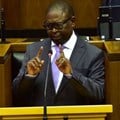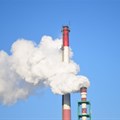While Minerals Council South Africa has welcomed the maiden annual budget speech by finance minister Enoch Godongwana which acknowledged the critical role mining plays in the South African economy, it has raised concern that the country's debt is forecast to rise to R5.4tn over the medium term from R4.3tn. SA is already incurring debt-servicing costs of R330bn a year, which is more than the government spends on health, police or basic education.
Godongwana’s commitment to reducing the fiscal deficit and stabilising debt, partially using the windfall from the mining sector’s high commodity prices, bodes well for the discipline the country needs in managing its finances. His comments that no permanent expenditure could be planned on the back of temporary high commodity prices and without worsening the deficit were realistic assessment of the unsustainable spending on grants paid to 46% of the population. His target of stabilising debt and achieving a primary balance by 2023/4 must be welcomed.
Realistic picture of mining production
“Minister Godongwana painted a very realistic picture of mining production and the negative impacts of rising input costs, electricity shortages, inadequate rail availability and regulatory uncertainty would have by moderating the mining sector’s recovery from two years of the Covid-19 pandemic,” says Minerals Council chief economist Henk Langenhoven.
“It was notable that Minister Godongwana acknowledged that the broader economy is not doing well and that it was really only mining that performed during 2021,” he adds.
Godongwana made the sobering assessment that commodity prices could weaken in the near to medium term. The current account surplus as a share of GDP remained steady at 3.8% in 2021, mainly because of high prices of iron ore, rhodium and coal in SA’s mineral sales which made up 60% of exports. However, commodity prices are forecast to ease and the current account will decline to a marginal surplus in 2022 before slipping into a deficit of -1.5% for each of the next two years.
'Tough love' for SoEs
The Minerals Council welcomed the promise of “tough love” for state-owned entities into which the government has pumped more than R308bn to bail out their failing balance sheets.
“The need for private-public partnerships in key state-owned companies like Eskom and Transnet’s rail and port assets is critical to ensure sustainable, inclusive economic growth and job creation,” says Langenhoven. “The speech did not go into as much detail on restructuring as perhaps we would have liked, but clearly there is a recognition in the government that it cannot save the economy by itself.”
The extension of the first phase introduction of the Carbon Tax to December 2025 will be a relief for mining companies and the broader economy. Mining companies have 3.9GW of renewable energy projects worth about R60bn in the pipeline and they need a sense of urgency from the government to approve them and reduce their exposure to Eskom and its carbon-heavy electricity generation.
Tax freeze
The freeze on hiking taxes will benefit the whole country, while the one percentage point reduction in corporate taxes to 27% sends the right message to business.
Included in the Budget was comment on two mining-specific taxes. “We note the proposed clarification of two sections of taxes specifically related to mining and welcome the clarity sought by Minister Godongwana. We trust the mining industry’s tax experts will be fully consulted on whatever changes are under consideration,” says Langenhoven.



















































